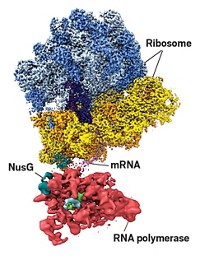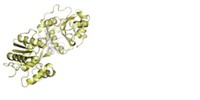Advertisement
Grab your lab coat. Let's get started
Welcome!
Welcome!
Create an account below to get 6 C&EN articles per month, receive newsletters and more - all free.
It seems this is your first time logging in online. Please enter the following information to continue.
As an ACS member you automatically get access to this site. All we need is few more details to create your reading experience.
Not you? Sign in with a different account.
Not you? Sign in with a different account.
ERROR 1
ERROR 1
ERROR 2
ERROR 2
ERROR 2
ERROR 2
ERROR 2
Password and Confirm password must match.
If you have an ACS member number, please enter it here so we can link this account to your membership. (optional)
ERROR 2
ACS values your privacy. By submitting your information, you are gaining access to C&EN and subscribing to our weekly newsletter. We use the information you provide to make your reading experience better, and we will never sell your data to third party members.
Biological Chemistry
Ribosome Has A Third Fidelity Trick Up Its Sleeve
Researchers discover a third step that is key to ensuring the accuracy of ribosomal protein biosynthesis
by Stuart A. Borman
January 12, 2009
| A version of this story appeared in
Volume 87, Issue 2
The high accuracy of ribosomal protein synthesis was believed to rely on the fidelity of two key biosynthetic steps, but a research team has found that a previously unknown step is a third important contributor to the fidelity of the process (Nature 2009, 457, 161). The two known steps on which mistake-free protein synthesis depends are the enzymatic addition of correct amino acids to each of the amino acid-specific transfer RNAs and the ribosome's selection of tRNAs that match up properly with each three-residue coding unit of messenger RNA. Both steps occur before peptide bond formation, the process by which amino acids are snapped onto growing proteins. Hani S. Zaher and Rachel Green of the Johns Hopkins University School of Medicine now report that the ribosome senses the incorporation of an incorrect amino acid and starts a process that leads to premature termination of the misspelled protein molecule's biosynthesis. This step, which occurs after peptide bond formation, may contribute close to an order of magnitude enhancement to the fidelity of protein synthesis, the researchers note.





Join the conversation
Contact the reporter
Submit a Letter to the Editor for publication
Engage with us on Twitter